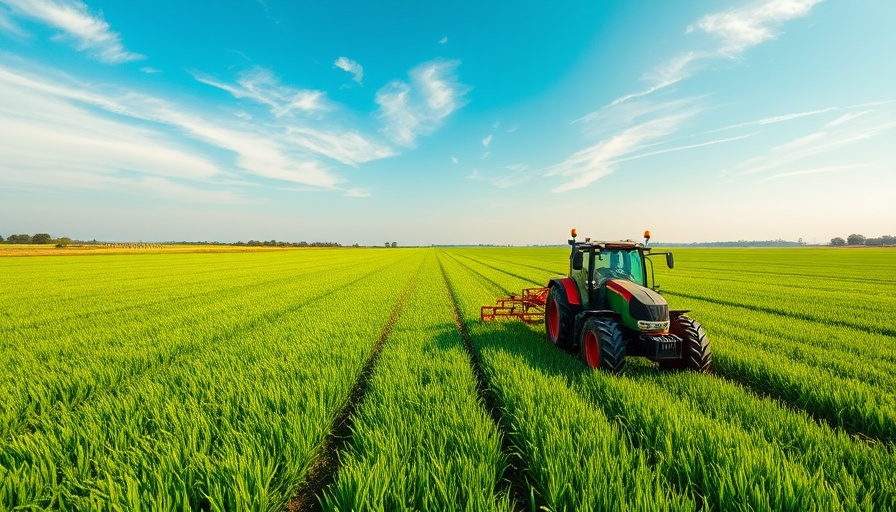
Investing in the Future of Sustainable Agriculture
As the world becomes increasingly aware of the environmental consequences of traditional farming practices, the movement toward organic and regenerative agriculture is gaining momentum. This shift not only promises healthier food options but also holds the potential to mitigate climate change by enhancing carbon sequestration in the soil.
Iroquois Valley Farmland REIT stands at the forefront of this transformation, providing financial support and resources to farmers aiming to transition to more sustainable farming practices. Founded 17 years ago, this investment company has invested $126 million across 36,000 acres of farmland, partnering with over 70 farmers across 20 states. Their approach emphasizes long-term partnerships, offering low-interest financing to help farmers gradually convert their land to organic production, which has become essential for protecting our food system.
The Impact of Regenerative Practices on Modern Farming
Regenerative agriculture is not just a trend; it’s a necessary evolution in how we manage land, particularly in light of the pressing threats posed by climate change. Farmers like Rex Wettstein, a fifth-generation farmer, exemplify this shift. His journey with Iroquois Valley began in 2019 when he sought to expand his operations with a new 200-acre farm in Illinois.
According to Chris Zuehlsdorff, CEO of Iroquois Valley, the organization views its relationship with farmers as a long-term partnership. This collaborative approach allows farmers to lease land for a set duration while providing them the opportunity to purchase it after they establish it as certified organic. This model encourages farmers to invest in sustainable practices without the immediate financial burden that often accompanies such transitions.
Community and Economic Resilience Through Organic Farming
The benefits of shifting to organic agriculture extend beyond environmental improvements; they also contribute significantly to local economies. By supporting farmers in their transition, Iroquois Valley plays a vital role in fostering community resilience. Their operations have resulted in the distribution of $37 million from investors to farmers, empowering them to embrace practices that benefit both their land and local communities.
This investment not only helps secure food production but also generates jobs and promotes the use of local resources. As more farmers make these transitions, communities become more self-reliant, leading to a more sustainable and equitable food system.
The Role of Local Partnerships in Sustainable Agriculture
By focusing on partnerships rooted in local communities, Iroquois Valley demonstrates the power of collaboration in addressing environmental and social challenges. Such initiatives indicate a shift in how agriculture can operate: not merely as a means of food production but as a holistic system that integrates social, economic, and environmental stewardship.
Moreover, the personal stories of farmers like Wettstein highlight the emotional investment that goes into sustainable farming. As these farmers cultivate their land to produce food that nourishes people, they also nurture the earth, setting a precedent for future generations about the importance of connecting with the land.
Conclusion: Building a Sustainable Legacy
The future of farming lies not only in the crops it produces but also in the values it embodies. As more initiatives like Iroquois Valley emerge, they illuminate a path toward a regenerative agricultural landscape that prioritizes both environmental health and community welfare. There’s a compelling narrative unfolding—a narrative where our efforts to be stewards of the land can lead to a more nourishing and sustainable world for all.
 Add Row
Add Row  Add
Add 



 Add Row
Add Row  Add
Add 

Write A Comment